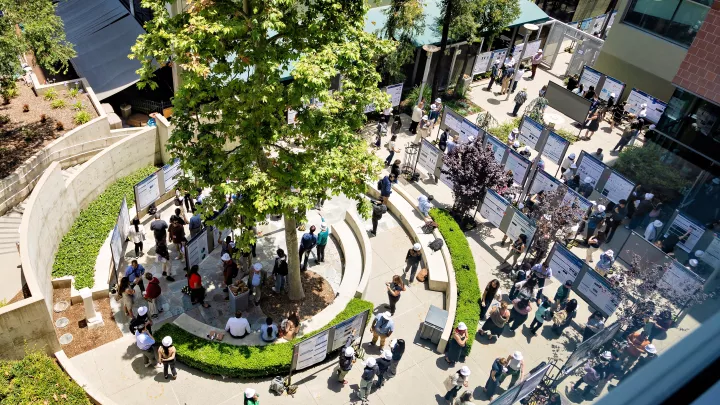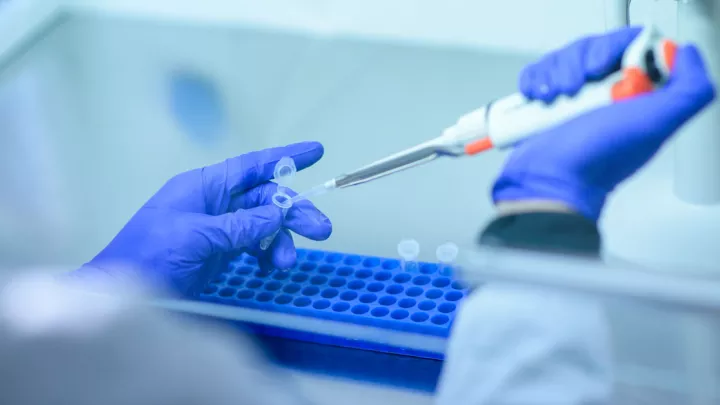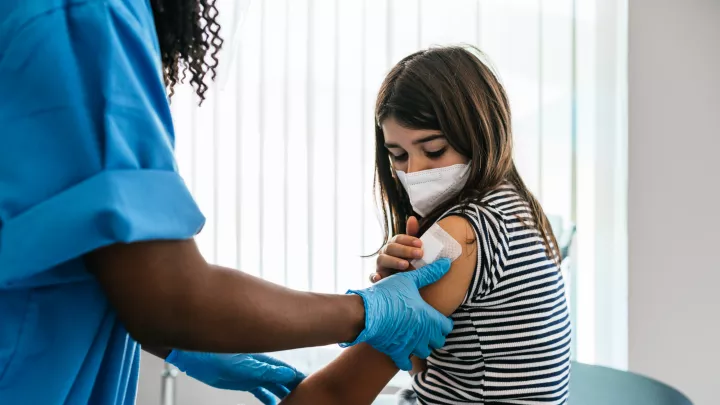
CHLA Researchers and Their Collaborators in RECOVER Initiative Publish Summary of Long COVID Symptoms in Children
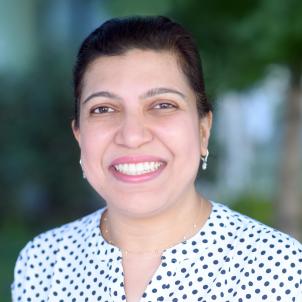
About 1 of 5 COVID-19 cases in the U.S. occurred in children and young adults, and nearly 6 million young people in the U.S. are affected by long COVID. But diagnosing long COVID remains difficult, because so much is still unknown about the wide variety of symptoms that affect children over time. Children’s Hospital Los Angeles is one of 10 pediatric sites involved in the Researching COVID to Enhance Recovery (RECOVER) Initiative, sponsored by the National Institutes of Health. It’s a massive effort to better predict, treat and prevent long COVID in children. The RECOVER collaborators have now published a report summarizing long COVID studies in the journal Pediatrics.
“At our Long COVID Recovery Care clinic, some patients have symptoms for two months and there are others whose symptoms have still not gone away two years later,” says Sindhu Mohandas, MD, co-Director of the Immunocompromised Infectious Diseases Program at CHLA and study co-author. “Few studies so far have followed children with long COVID for more than 12 months. Doctors seeking information could only refer to small, case-based studies. Pediatric clinicians and researchers can now use this paper to quickly access the latest research on long COVID in children and reference the source studies.”
About RECOVER
The RECOVER Initiative follows children and young adults from birth through age 25 for up to four years and combines data from this longitudinal study—including severity of disease, clinical impact, and the effects of vaccination and treatment—with information from over 8.9 million electronic health records. The RECOVER-Pediatrics cohort has enrolled over 11,000 children who have developed long COVID, as well as healthy volunteers. To represent U.S. ethnic diversity, participants were recruited at 100 sites around the country.
Patterns emerge
As a first step, the RECOVER collaborators, each an expert in a different branch of medicine, examined studies on pediatric long COVID. Some of the study findings so far have shown that about 45% of the children who developed long COVID experienced COVID-19 symptoms rather than symptomless infections (15%). Other risk factors include older age, more severe initial COVID-19 infection, the number of different organ systems initially affected, underlying medical conditions and higher weight.
Multiple Long COVID effects
Long COVID affects every organ system in the body. The RECOVER report notes that the most common long COVID symptoms include persistent headaches, weakness, shortness of breath, loss of taste and smell, and dizziness. Fatigue or difficulties in concentration—known as brain fog—after physical or mental effort can also result. Brain fog can mimic symptoms of chronic fatigue syndrome (myalgic encephalomyelitis) that can persist for at least six months, impairing daily functioning. But the underlying cause for these two conditions may not be the same.
Anxiety, ADHD, and disorders related to trauma or stressors are common mental health conditions also associated with long COVID in children and adolescents. “These issues can occur for many other reasons as well,” cautions Dr. Mohandas. “But the provider should be open to considering long COVID as a diagnosis, and this paper provides the varied ways that it can affect children.”
Delayed reactions
Studies have found that long COVID can aggravate chronic pre-existing conditions such as asthma. Interestingly, this didn’t happen with the initial infection, but the asthma intensified up to six months later.

Long COVID can also trigger the onset of new autoimmune conditions such as Type 1 or Type 2 diabetes up to a month after COVID-19 infection.
Cardiac effects
“Most MIS-C symptoms disappear after six months, but a minority of children still experience unexplained exercise intolerance and fatigue,” says John C. Wood, MD, PhD, cardiologist and investigator at CHLA and study co-author.
Pediatricians are under-diagnosing long COVID, Dr. Wood adds. “Some believe children don’t get long COVID and others just don’t know the signs and symptoms. I think the big ’added value’ to this published study is that it provides some of the characteristic ’fingerprints’ that pediatricians can use to recognize
long COVID.”
Same symptoms but different conditions
Long COVID can also worsen rare fibromyalgia and connective tissue disorders such as Ehlers Danlos syndrome or Marfan syndrome. These conditions are linked with chronic fatigue syndrome and the dysregulation of involuntary body functions such as blood pressure and heart rate, causing dizziness when shifting position or standing, a condition similar to postural orthostatic tachycardia syndrome (POTS).
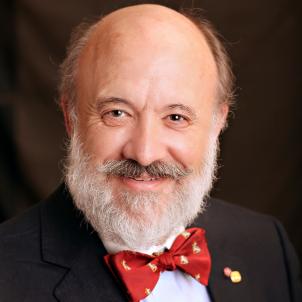
“We needed to follow a large group of kids over a long span of time to see the prevalence and clinical course of some of these rare symptoms,” says David Warburton, MD, stem cell researcher, neonatologist at CHLA and study co-author. “Our hope is that this effort to better understand long COVID can lead to a deeper understanding of some of these other conditions as well—and to effective treatments. We are now collecting information on symptoms that re-emerge over time during periods of physical and/or psychological stress and re-infection, to learn how to prevent chronic conditions from emerging in adulthood—and to propose new areas for future investigation.”
